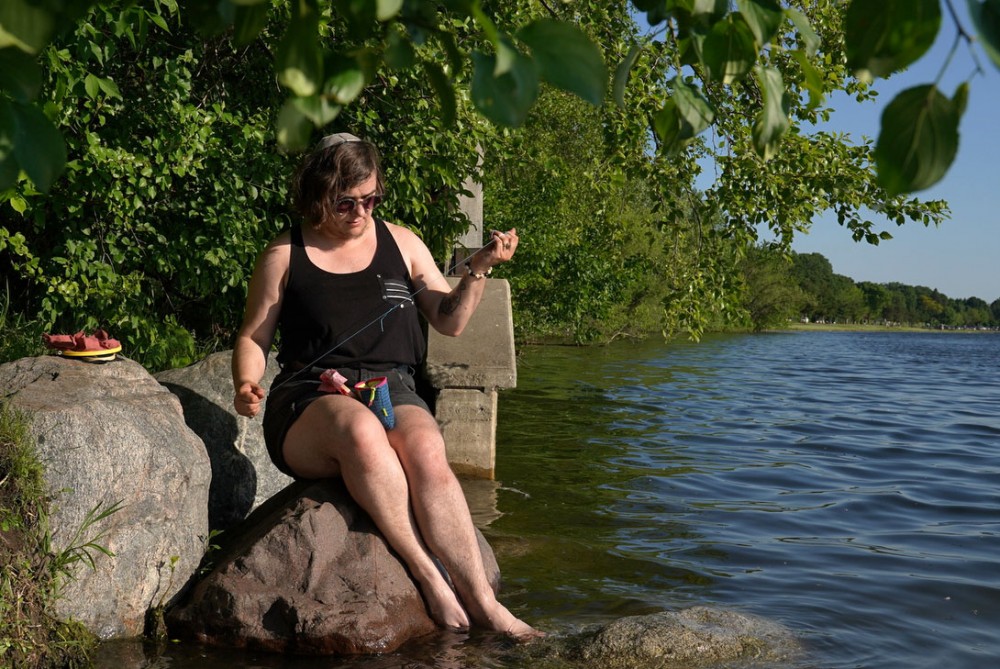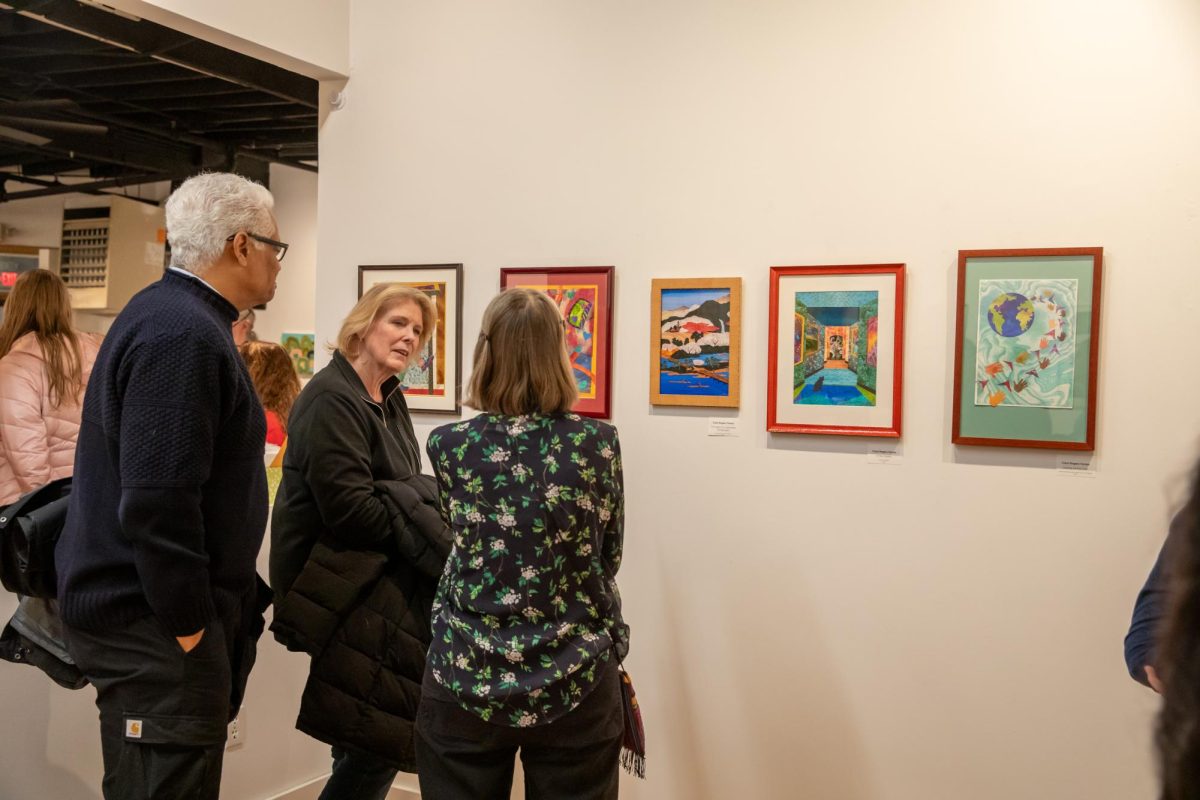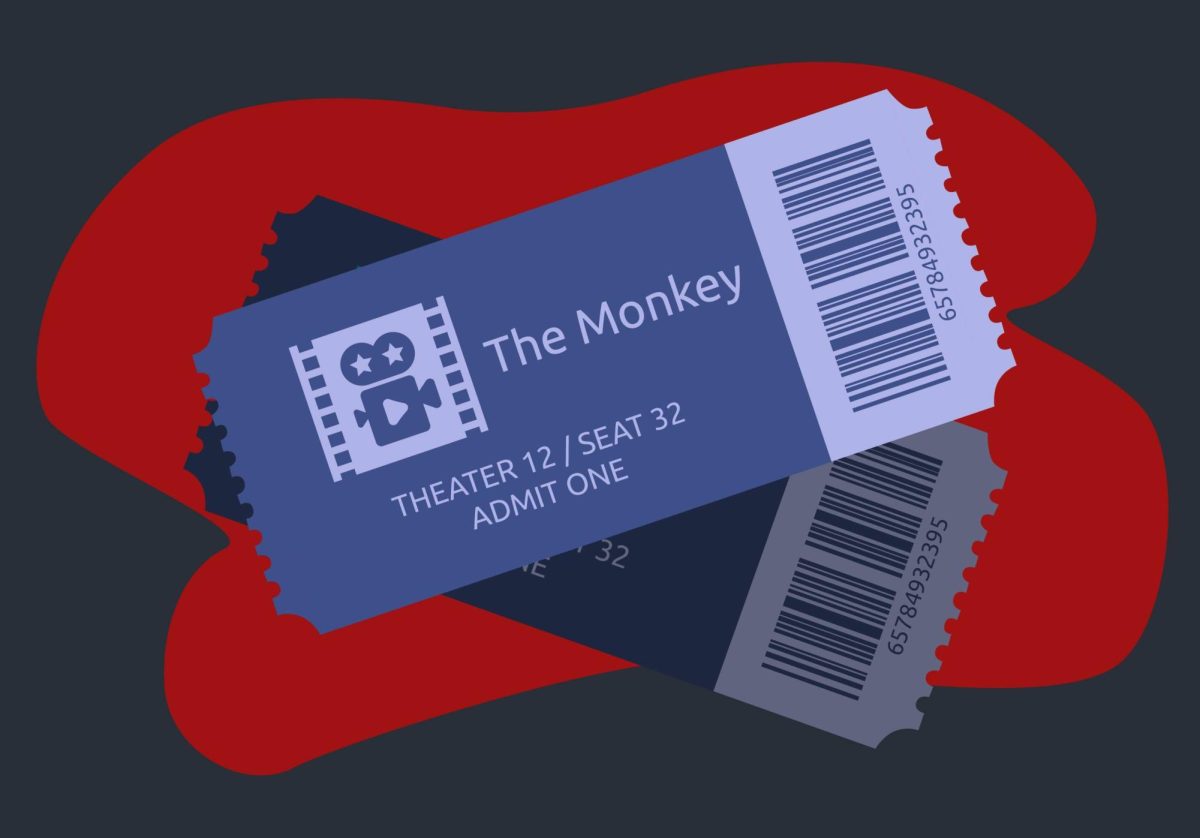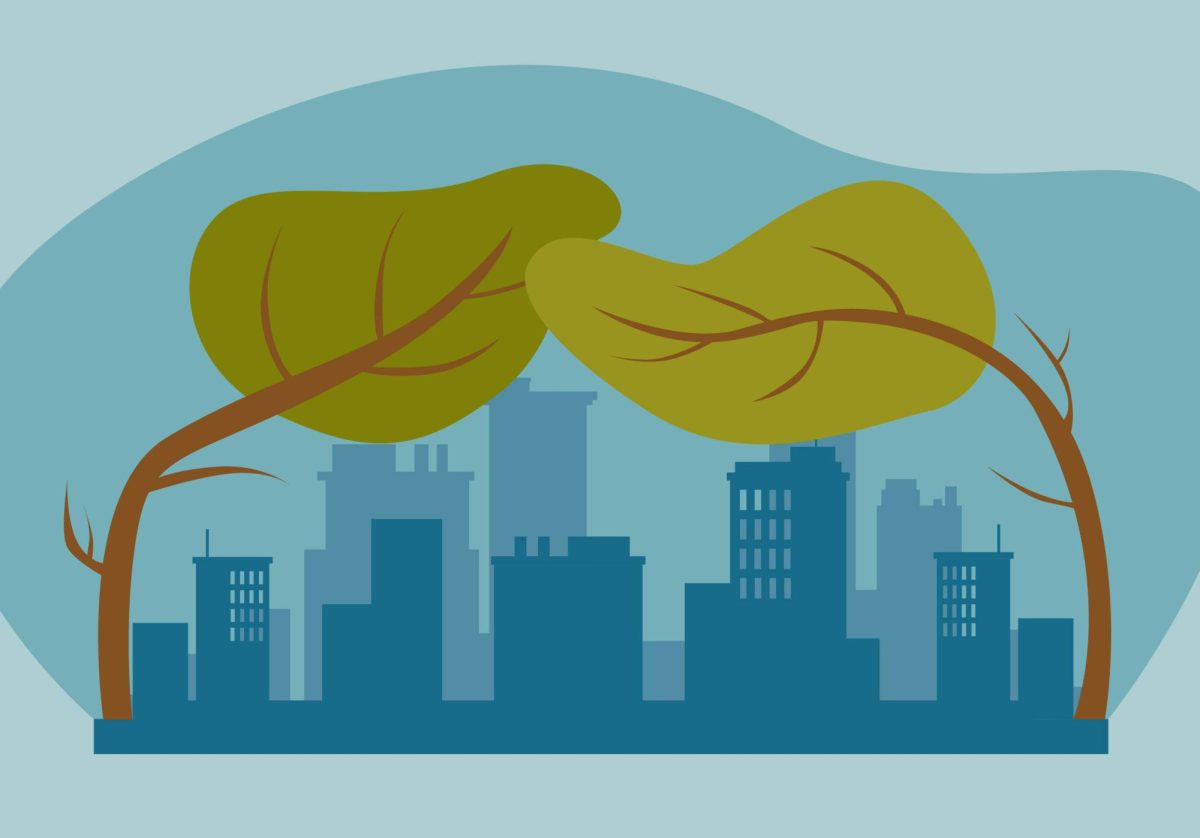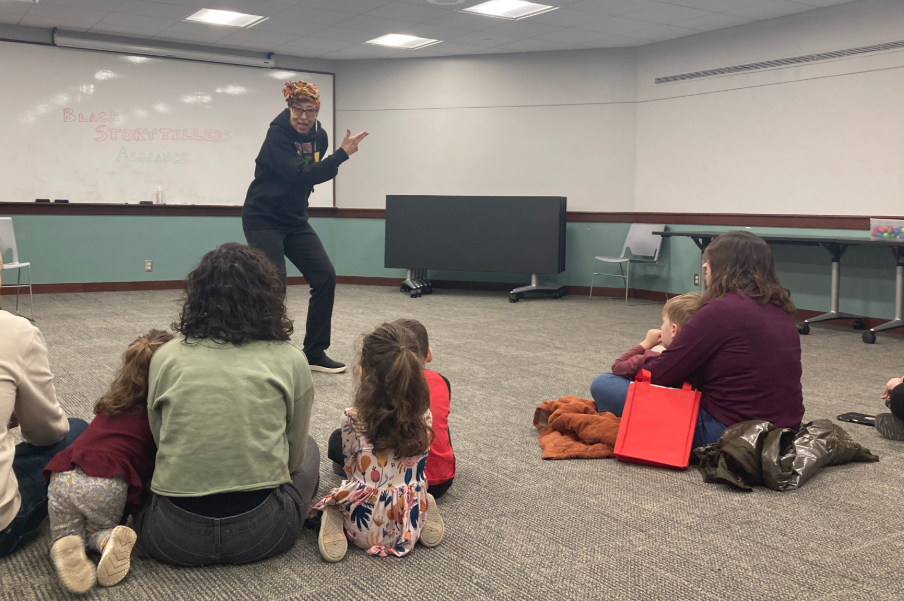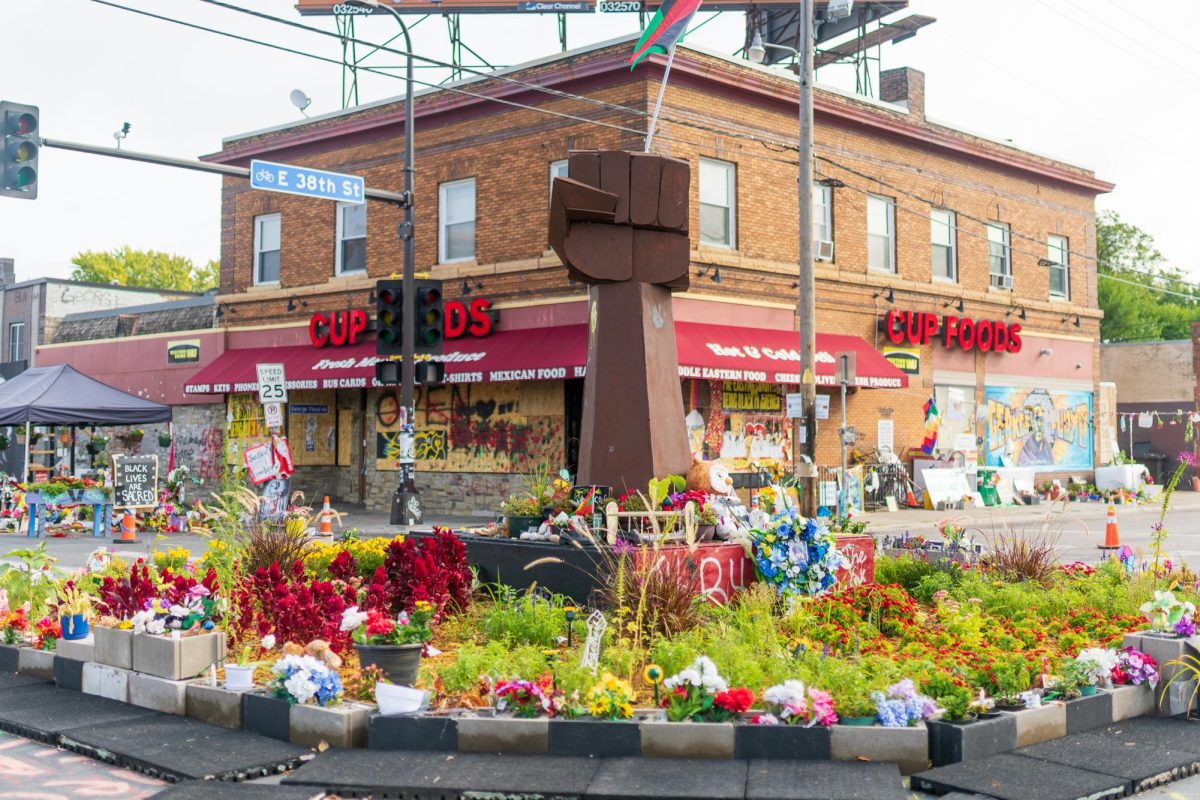Liza Gorman-Baer’s most recent embroidery series focuses on the nude human body. Each of the six pieces contains a tracing from a photograph of one of their close friends.
Using leftover fabric scraps from their mother’s quilting bin, Gorman-Baer said they were first drawn to the repetitive nature and creativity of embroidery.
The result is realistic with body hair, fat rolls and stretch marks. One subject holds a cane; another shows off a strap-on. All of them are adorned with colorful pinwheeled flowers and snaking vines.
“When you think about the politics of what kind of bodies you see in art, its always been a celebration of a very specific kind of beauty,” Gorman-Baer said.
Although feminist art has been given more space in traditional art galleries, some exclude trans and non-binary bodies, Gorman-Baer said.
Through their work, they hope to bring attention to bodies that are not often shown in mainstream media.
“I want people to see themselves represented in art, and if we’re going to be celebrating bodies through art, I want my queer, trans, disabled friends [and] people of color to know that their bodies are just as worthy of celebrating,” they said.
By working in a traditionally feminine medium which is often more associated with “craft” than “art,” Gorman-Baer uses embroidery to start a conversation on multiple levels.
Raegan Jaeger, a former manager and friend of Gorman-Baer, said their work is especially impactful because of its accessibility as an art form.
“What Liza is doing in their work is creating this platform to talk about these really dense concepts as casual conversation and creating a way to talk about [them],” Jaeger said. “Especially if people … have art hanging on their jacket like it is on mine, all [of] the sudden someone can ask you about it and in that moment you can jump into a conversation about something that may be bigger.”

Gorman-Baer also uses their work to give money directly to communities.
Jennifer Smith, founder of Bunny Besties, a therapy animal nonprofit that works with PAWS at the University, said she was shocked when Gorman-Baer handed her an envelope with about $140 to help cover start-up costs for the organization after having auctioned off their embroidery at an art fair the previous weekend.
“I never had another volunteer do anything like that,” she said. “It was the time when we at one point had seven dollars in our [bank] account … I was so floored.”
Gorman-Baer has also raised money for the National Network of Abortion Funds and Planned Parenthood.
“I want people to recognize embroidery and fiber arts as revolutionary and artistic and give it the value it deserves,” they said. “And I think I can see that already happening.”


